Engaging North Carolina
Jackson County
Quick Facts
Students: 35Applicants: 40
Alumni: 187
Park Scholars: 2
Goodnight Scholars: 0
Caldwell Fellows: 0
Jackson County, located in the southwestern hills of the state some 325 miles from Raleigh, has a population of 42,973 and a total employment of 13,526 (31.5%).
While the county seat is Sylva, its most widely known community is Cullowhee, home of UNC System school Western Carolina University, which has 11,636 enrolled students and is one of the county’s largest employers. The school’s most renowned leader, Harold “Cotton” Robinson, earned his bachelor’s and master’s degrees from NC State before going to work as a seed specialist with the North Carolina Crop Improvement Association.
His career was interrupted by World War II, and after the war he returned to NC State to study applied statistics under pioneering professor Gertrude Cox. He founded NC State’s Department of Genetics in 1958 and was named director of the Institute of Biological Sciences in 1962 before becoming provost at Purdue and then chancellor at Western Carolina.
Jackson County’s most profitable agricultural product and its largest product by acreage is cut Christmas trees. The type of livestock produced most by total number is cattle/layers (chickens).
The largest manufacturer is Jackson Paper Manufacturing (the county’s 17th-largest employer), which manufactures recycled-paper products and employs between 100 and 249 people.
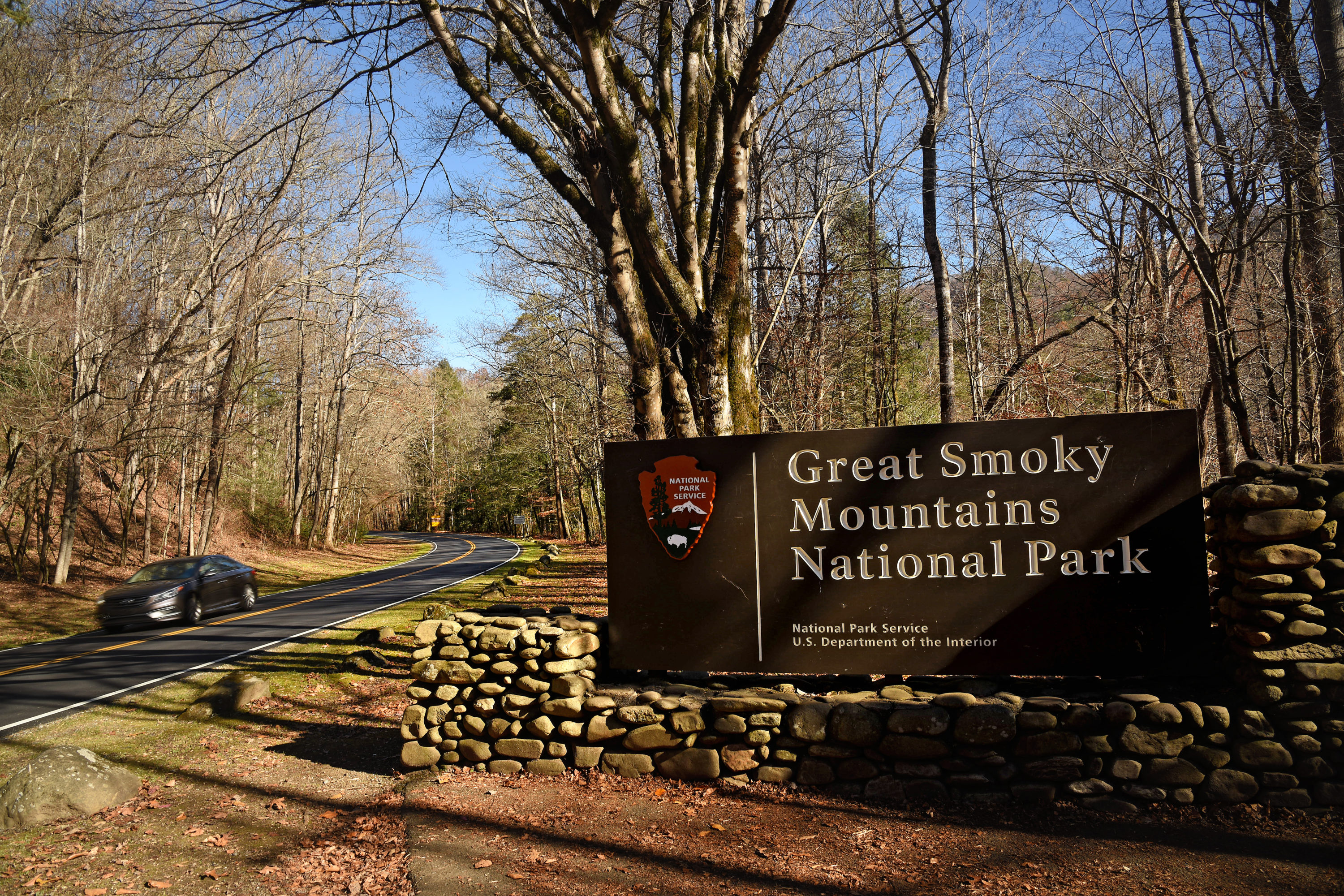
Entrance to Great Smoky Mountains National Park on land belonging to the Eastern Band of Cherokee Indians.
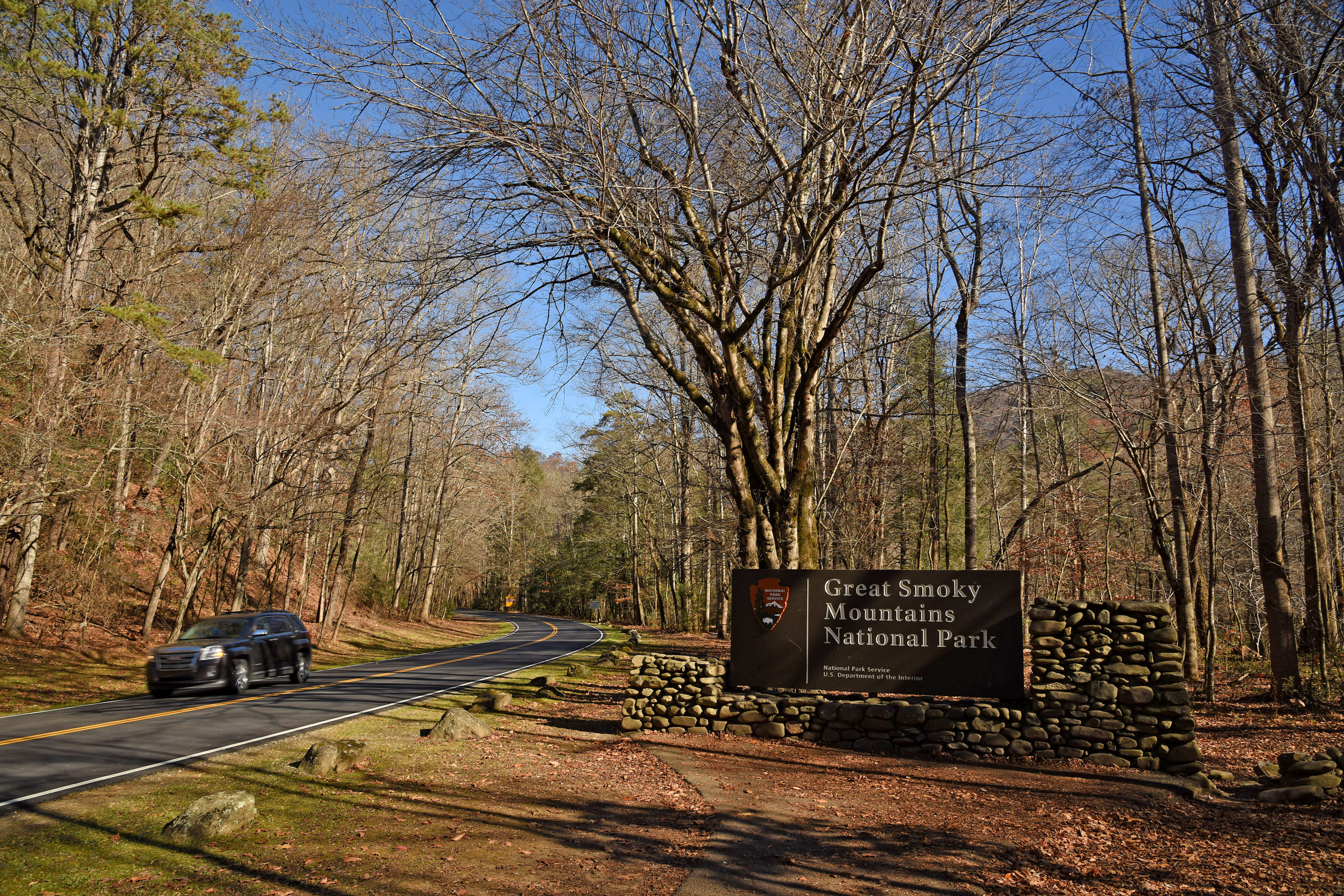
Entrance to Great Smoky Mountains National Park on land belonging to the Eastern Band of Cherokee Indians.
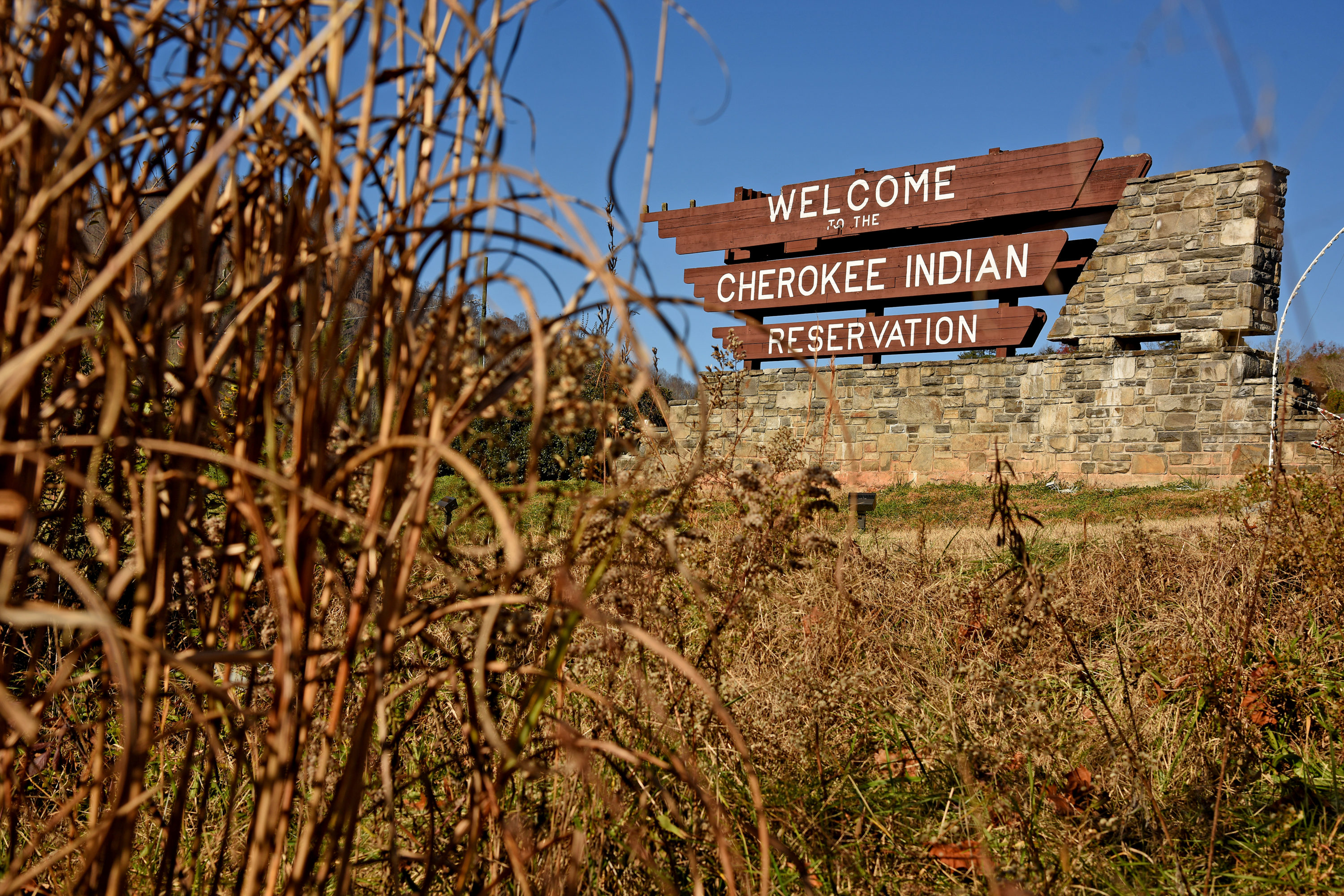
Welcome sign at the Cherokee Indian Reservation.
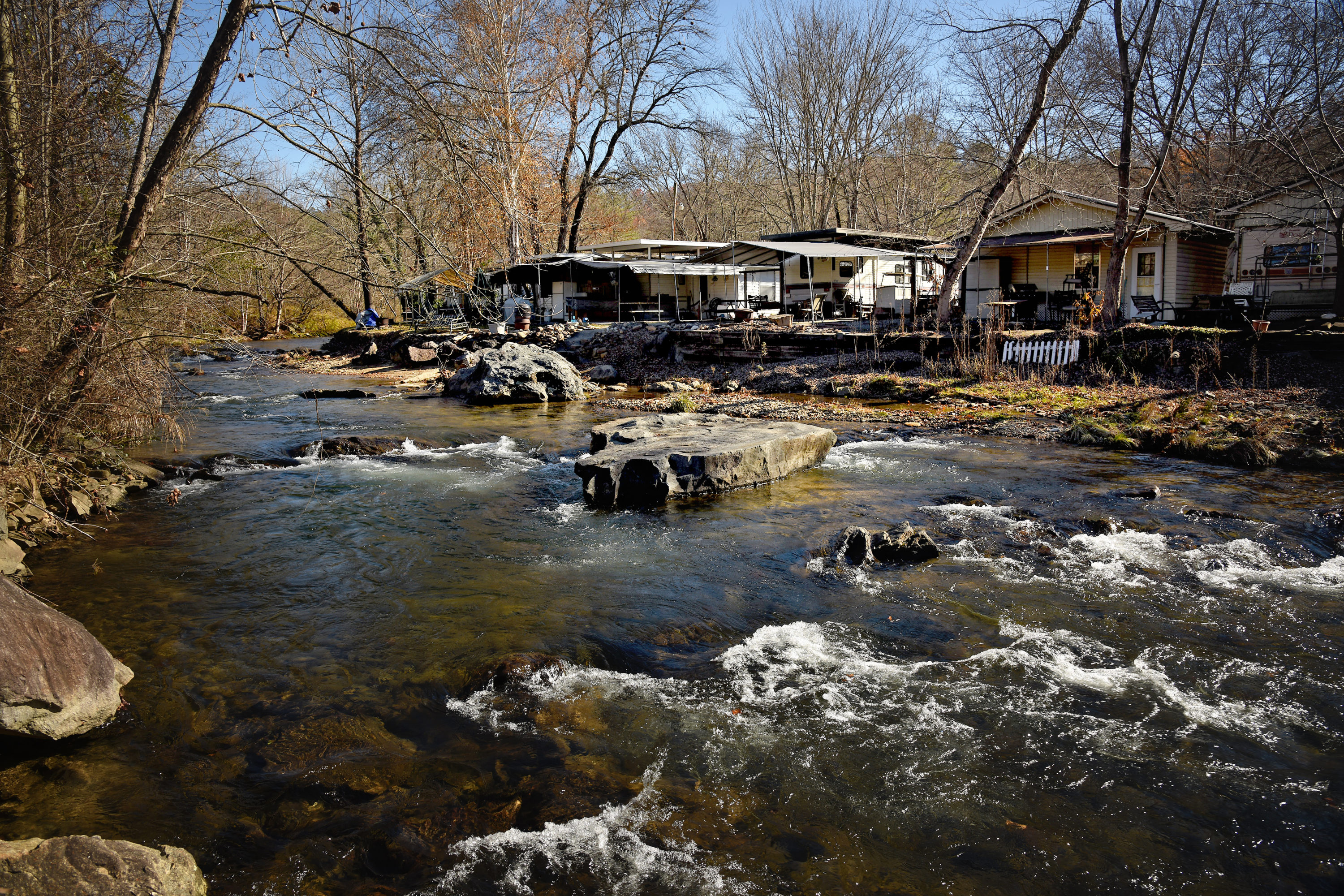
Homes along the creek beside the entrance to the Cherokee Indian Reservation.
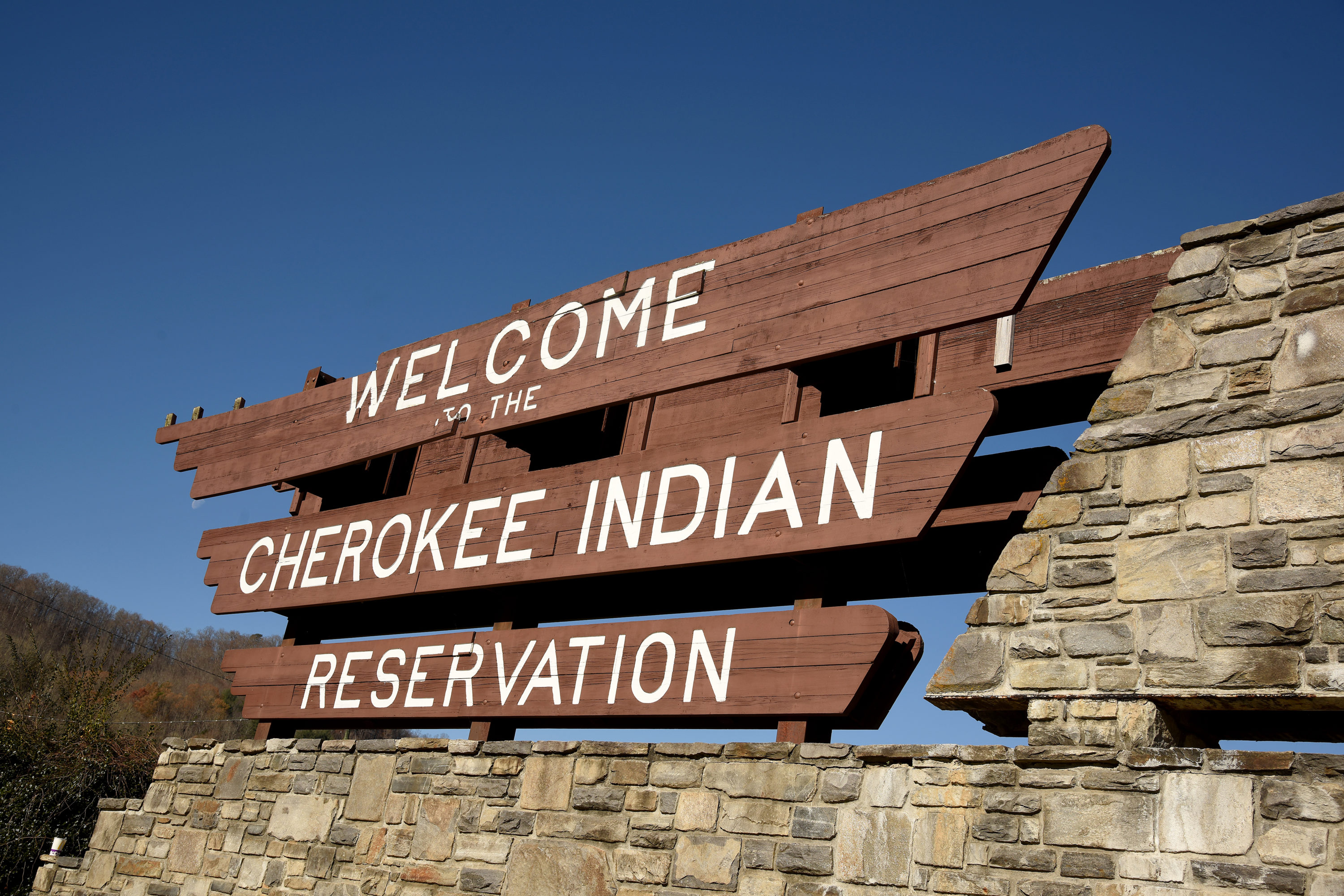
Welcome sign at the Cherokee Indian Reservation.
1 of 5
Pride of the Pack
From Cullowhee to Curie to Corrosion Control
Col. George Chandler Cox, a native of Cullowhee and one of five sons of North Carolina legislator T.A. Cox, earned bachelor’s and master’s degrees in electrical engineering at NC State before enlisting in the U.S. Army for World War I in 1918 as a member of the 105th Field Signal Battalion, 30th Division. He won multiple decorations – including the U.S. Distinguished Service Cross and the Silver Star and the French Croix de Guerre – for bravery during the Battle of Cantigny in France, the first major U.S. offensive after entering the war.
He returned to Raleigh to become an instructor of electrical engineering at NC State, but later he left to pursue graduate degrees at Columbia University in New York and the Sorbonne Institute in Paris, where he studied under multiple Nobel laureate Marie Curie. He became a world leader in electrochemical engineering, specifically for metal plating in ships.
Prior to World War II, Cox worked at the Newport News Shipbuilding and Dry Dock Company; during the war, he served in shipbuilding operations at Southampton, England. While there, he developed a new underwater electroplating for removing rust from the interior hulls of military vessels. In 1945, he received the Legion of Merit, the U.S. Army’s second-highest honor for a noncombatant during wartime, for his “outstanding work in the development of new processes for removing rust and corrosion from the interior of tank ships and other vessels.”
He retired from the Army in 1947 to become a consulting engineer in Charlestown, West Virginia. At the time of his death in 1970, Cox owned 12 U.S. and 17 international patents related to corrosion control.